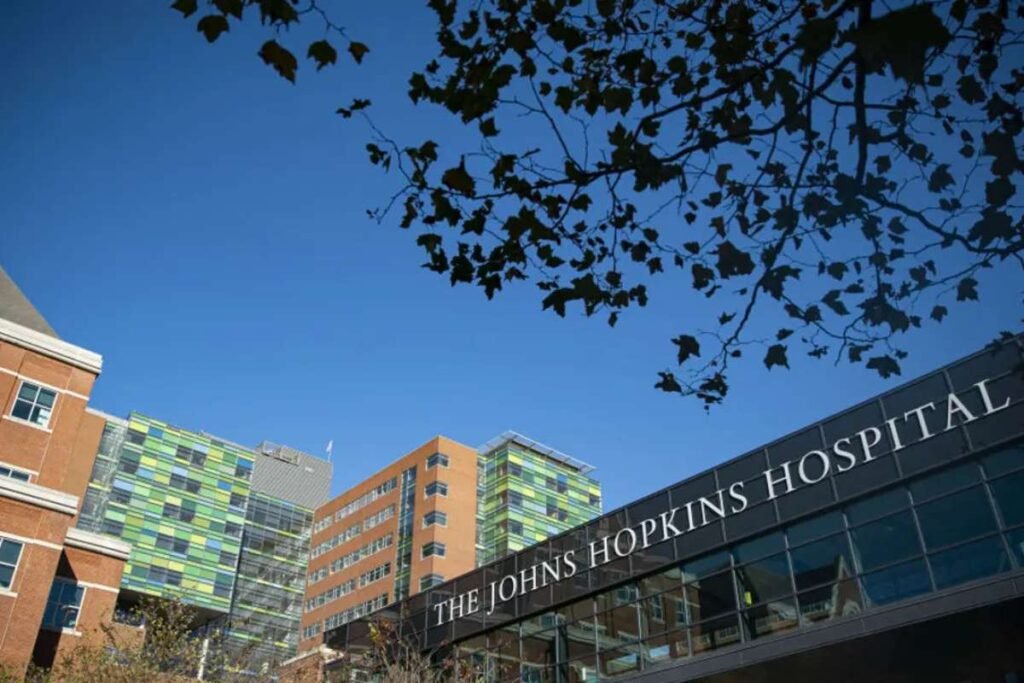Johns Hopkins Medicine and UnitedHealthcare remain at the negotiating table after failing to reach a new contract agreement, hospital officials confirmed Monday. The dispute, ongoing for more than eight months and extended five times, centers not on reimbursement rates but on policies that Johns Hopkins physicians say could make it harder to provide timely care to patients.
Negotiations officially reached their deadline without resolution, though both sides said talks are ongoing. Johns Hopkins Medicine representatives stressed that the sticking points involve prior authorization requirements, claim denials, and other administrative practices they argue delay care. UnitedHealthcare countered that Johns Hopkins is seeking contract terms no other provider system has demanded.
Patient Impact and Growing Concerns
The stalled negotiations have left many patients uncertain about their access to care. Abingdon resident Heather Reynolds, whose newborn recently lost in-network access to a Johns Hopkins physician, said she is frustrated with the uncertainty. “Kind of annoyed and freaked out,” Reynolds told WBAL-TV. She is now seeking care through urgent care facilities and new providers.
The Maryland State Medical Society said patient stories like Reynolds’ are not uncommon. Gene Ransom, the group’s CEO, said his organization has long received complaints about UnitedHealthcare practices. He described the insurer’s policies as “aggressive,” citing prior authorization rules and claim denials that doctors believe prioritize cost savings over patient care.
“This isn’t the only large physician group that has walked away from UnitedHealthcare,” Ransom noted. “They’ve been even more aggressive lately with insurance bureaucratic measures that make it harder for doctors to treat patients.”
Official Statements from Both Sides
In a statement, Johns Hopkins Medicine emphasized that the conflict is not financial. “We are negotiating our contract with United so that we can avoid aggressive claim denials that delay necessary care, excessive red tape that forces patients to wait for treatments, and significant payment delays that strain our ability to provide care,” the hospital said. “We will not sign a contract that allows an insurance company to put profits over patients’ health and well-being.”
UnitedHealthcare responded by saying Johns Hopkins’ demands would give the health system authority to deny patient access outside of normal network agreements. Joseph Ochipinti, CEO of UnitedHealthcare’s Mid-Atlantic region, said the insurer had “repeatedly sought compromise” to prevent disruption but was met with resistance.
“Johns Hopkins refused to move off contractual terms no other health system in our network requires,” Ochipinti said. “While we remain committed to continued negotiation, our top priority now is providing people with the care they need through continuity of care or a smooth transition to another provider.”
Options for Patients During Negotiations
Despite the dispute, some protections remain in place for patients. UnitedHealthcare’s “continuity of care” policy allows members in active treatment to request ongoing access to their Johns Hopkins doctors at in-network rates until the next open enrollment period. This applies to patients with chronic illnesses, those receiving prenatal care, and others in continuous treatment.
Additionally, transplant patients already approved for care at Johns Hopkins will retain in-network access, regardless of the contract outcome. Emergency services at Johns Hopkins hospitals will also be covered at the in-network benefit level for UnitedHealthcare members.
Patients with UnitedHealthcare Group Retiree PPO plans may continue to access Johns Hopkins providers at out-of-network facilities, typically at the same cost as in-network care.
Medical experts recommend that patients file complaints with the Maryland Insurance Administration if coverage is denied for ongoing treatments such as obstetrics or chronic disease management.
Limited Geographic Scope
The dispute affects Johns Hopkins Medicine providers in Maryland, Virginia, and Washington, D.C. Facilities in Florida remain in-network for UnitedHealthcare members. Both Johns Hopkins and UnitedHealthcare said they remain committed to reaching an agreement but acknowledged that significant policy differences remain unresolved.
For now, patients are urged to review their insurance options, explore continuity of care provisions, and prepare for possible changes during the next enrollment cycle.
Also Read :-Sixth Death Reported in Harlem Legionnaires’ Disease Outbreaks as Cases Rise to 111









